
About Indian Green Building Council:
- The Indian Green Building Council (IGBC) is part of the Confederation of Indian Industry (CII) and was formed in the year 2001.
- It is India's Premier certification body.
- The council offers a wide array of services, which include developing new green building rating programmes, certification services and green building training programmes.
- The council also organises the Green Building Congress, its annual flagship event on green buildings.
- It is also among the 5 countries that are on the board of the World Green Building Council, discussing global issues at COP and similar global platforms.
- The rating is based on six environmental categories, which include sustainable station facility, health, hygiene and sanitation, energy efficiency, water efficiency, smart and green initiatives and innovation and development.
- Headquarter: Hyderabad.

About one-hour trade settlement:
- In one-hour settlement, if an investor sells a share, the money will be credited to their account in an hour, and the buyer will get the shares in their demat account within an hour.
- What is trade settlement?
- Settlement is a two-way process that involves the transfer of funds and securities on the settlement date.
- A trade settlement is said to be complete once purchased securities of a listed company are delivered to the buyer and the seller gets the money.
- The current cycle of T+1 means trade-related settlements happen within a day or 24 hours of the actual transactions.
- The migration to the T+1 cycle came into effect in January 2023.
- India became the second country in the world to start the T+1 settlement cycle in top-listed securities after China.
What is a Demat Account?
- A Demat Account or Dematerialised Account provides the facility of holding shares and securities in an electronic format.
- During online trading, shares are bought and held in a Demat Account, thus facilitating easy trade for the users.
- It holds all the investments an individual makes in shares, government securities, exchange-traded funds, bonds and mutual funds in one place.
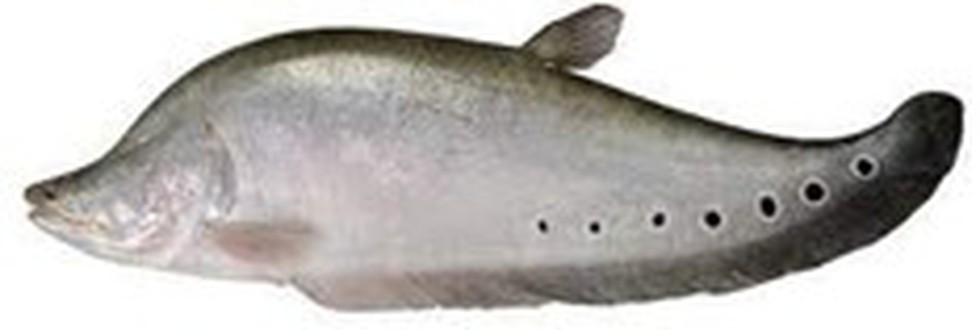
About Chitala Fish:
- It is an obligate, typically nocturnal, predator feeding on smaller fishes.
- Distribution
- Although often reported to range throughout most of southern Asia, this species is probably restricted to the Indian subcontinent in Pakistan, India (records from the states of Manipur, Uttaranchal, West Bengal, Assam, Tripura, Uttar Pradesh, and Bihar), Nepal, and Bangladesh.
- Habitat
- It is mostly known from major river channels and freshwater lakes but has also been observed in swamps.
- It is found in the Indus, Ganges-Brahmaputra and Mahanadi river basins in India.
- Conservation status
- IUCN: Near Threatened
Significance of Chitala’s River Ranching
- This initiative aims to balance the aquatic ecosystem, increase the income of fish farmers, and provide a protein-rich diet to the public.
- Projects worth over 1000 crore are also underway in Uttar Pradesh under the Pradhan Mantri Matsya Sampada Yojana.

About Comet Nishimura:
- The comet was discovered in mid-August by amateur astronaut Hideo Nishimura, who used 30-second exposures with a standard digital camera to see it.
- Since then, the comet, officially called C/2023 P1 Nishimura, has increased in brightness as it went forward on its path in the inner solar system.
- The comet is angularly near the Sun, so even if it is visible, it will only be able to spot it early before sunrise or late before sunset.
- The comet is currently located in the constellation Leo.
- It completes an orbit around the Sun once every 435 years.
What are comets?
- Comets are cosmic snowballs of frozen gases, rock and dust that orbit the Sun.
- They are leftovers from the formation of the solar system.
- Typically, they range from a few kilometres to tens of kilometres wide. But as they orbit closer to the Sun, they spew out gases and dust, which form the tails that they are famous for.
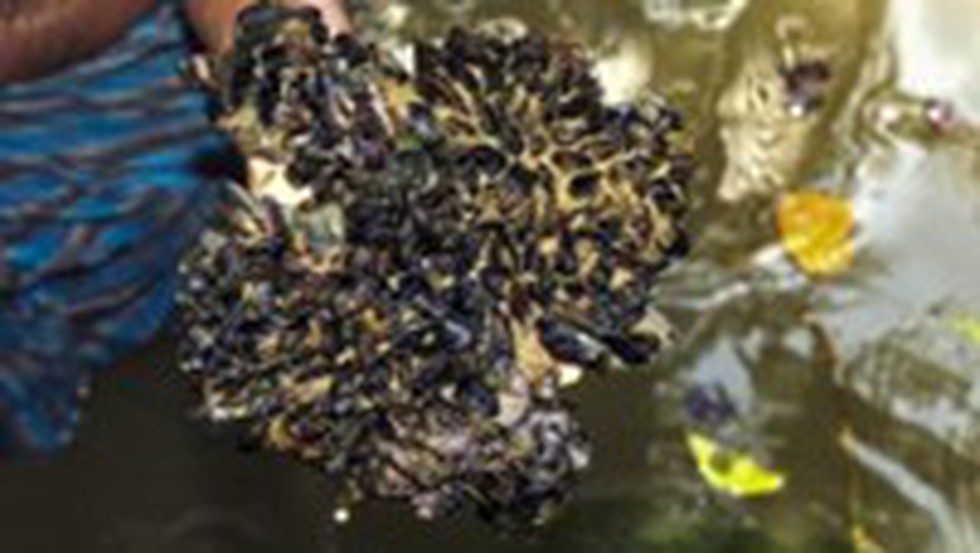
About the Caribbean false mussel:
- It is originally from the Atlantic and Pacific coasts of South and Central America.
- It could have reached the Indian coast through ballast waters (the seawater that ships carry inside for better stability) and later spread to the estuaries through smaller fishing vessels.
- This invasive species has spread across estuaries from Thiruvananthapuram to Kasaragod.
- It has also started affecting the mussel aquaculture farms in Kerala.
- It reproduces rapidly, is very tolerant, and can even survive in freshwater.
- They grow in similar habitats where our mussels grow and displace them massively.
- It can be found growing on hard surfaces such as logs, stones, shells, and artificial structures.
Key facts about IPBES
- It is an independent intergovernmental body.
- It was established in Panama City in April 2012 by 94 Governments.
- It aims to strengthen the science-policy interface for biodiversity and ecosystem services for the conservation and sustainable use of biodiversity, long-term human well-being and sustainable development.
- It is not a United Nations body. However, the United Nations Environment Programme (UNEP) provides secretariat services to IPBES.
- HQ – Bonn, Germany

About Lunar Reconnaissance Orbiter (LRO):
- It is a NASA spacecraft that was launched on June 18, 2009.
- Primary Objective: To make a 3D map of the Moon's surface from lunar polar orbit.
- It has also been used to study the Moon's geology, mineralogy, and environment.
- It orbits the Moon in an eccentric polar mapping orbit.
- LRO is equipped with 7 science instruments, the most well-known of which is a 195-millimeter (7.7-inch) telescope and camera system that can see details up to 2.5 meters across.
- LRO is equipped with a laser altimeter that produces 3D maps by shooting lasers at the surface and measuring reflection times.
- The spacecraft also carries two instruments suited to peering into dark craters to search for signs of water ice and a temperature instrument that led to the discovery of the coldest place in the solar system.
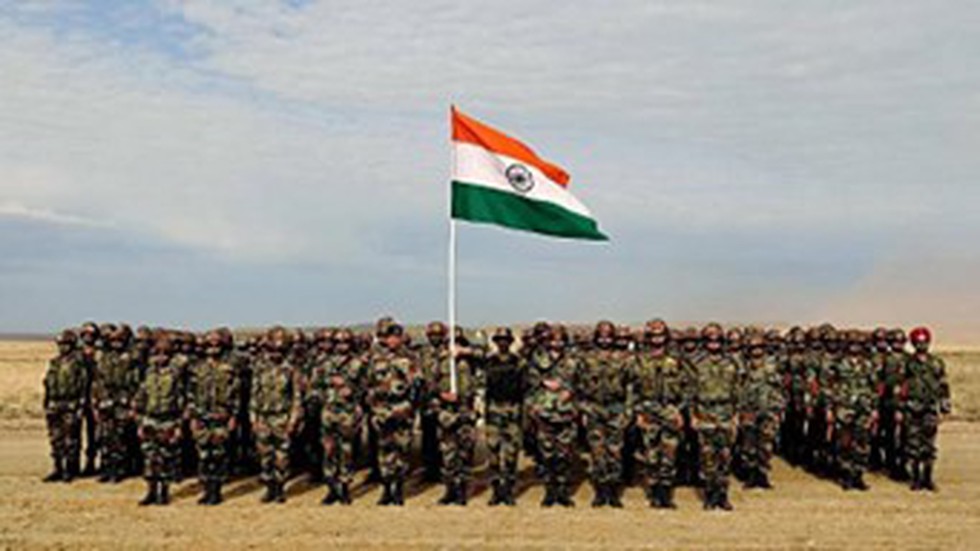
About Project Naman:
- The Project will entail establishing facilitation and grievance redressal centres for veterans and the kin of personnel who have lost their lives.
- The first such centre will be established in Delhi Cantonment.
- 'Naman' will house a Common Service Centre, which will facilitate the veterans and their relatives.
- It will offer all government-to-customer services and also facilitate the updating of pensioners' accounts on the SPARSH portal of veterans, next of kin and dependents.
What is the SPARSH portal?
- It is being implemented by the Ministry of Defence to meet the pension sanction and disbursement requirements for Armed Forces viz. Army, Navy, Air Force and Defence Civilians.
- The Defence Pensioner will be given a completely transparent view of his pension account through this portal, which will capture and maintain a complete history of events and entitlements the pensioner right from the date of commencement of pension to the date of cessation of pension due to his/her last eligible beneficiary.
- This system will be administered by the Defence Accounts Department through the Principal Controller of Defence Accounts (Pensions).
- The system would cater to all activities of the pension cycle, namely:
- Initiation and Sanction
- Disbursement
- Revision
- Service and Grievance Request Management
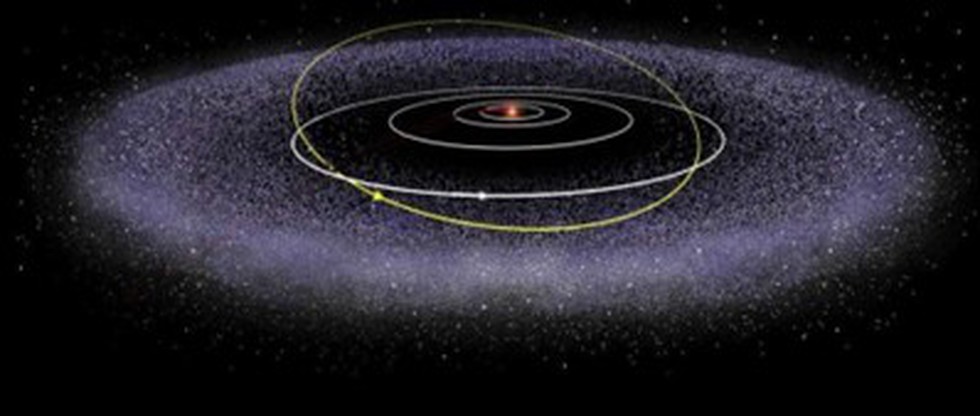
About Kuiper Belt:
- The Kuiper belt, also called the Edgeworth-Kuiper belt, is a flat ring of small icy bodies that revolve around the Sun beyond the orbit of the planet Neptune.
- It is named after Gerard Kuiper, a Dutch-American astronomer who hypothesised the existence of such a region in the 1950s.
- There are millions of these icy objects, collectively referred to as Kuiper Belt objects (KBOs) or trans-Neptunian objects (TNOs), in this belt.
- The Kuiper Belt is a region of leftovers from the solar system's early history.
- It is thought to be the source of most of the observed short-period comets, particularly those that orbit the Sun in less than 20 years.
- Composition: The Kuiper Belt is primarily composed of small icy bodies, such as dwarf planets, asteroids, and comets.
- Pluto:
- Pluto, once considered the ninth planet in our solar system, is one of the most well-known Kuiper Belt objects.
- In 2006, the International Astronomical Union (IAU) reclassified Pluto as a dwarf planet, partly because of its location within the Kuiper Belt.
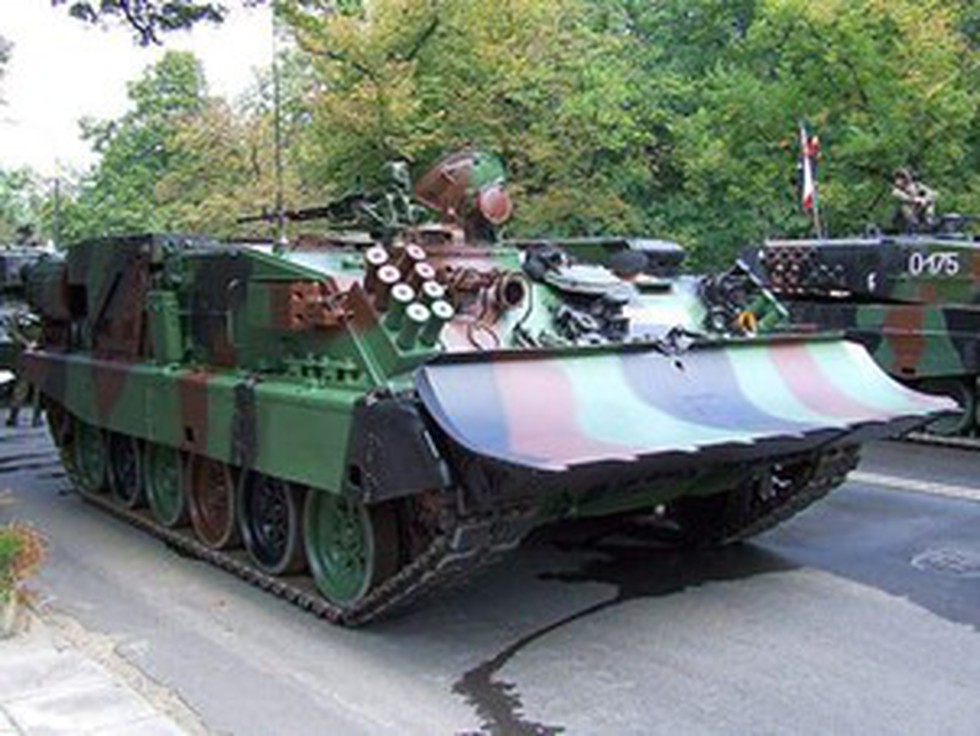
About Armoured Recovery Vehicles:
- They are specialised military vehicles designed to recover and maintain armoured vehicles on the battlefield.
- These vehicles are crucial for keeping armoured units operational by recovering damaged or disabled tanks and other armoured vehicles, performing field repairs, and evacuating casualties.
- They are normally built on the chassis of a main battle tank (MBT), but some are also constructed on the basis of other armoured fighting vehicles, mostly armoured personnel carriers (APCs).
- Functions:
- Towing and Recovery: They can recover vehicles stuck in mud, water, or other obstacles and tow them to safety or repair depots.
- Maintenance and Repair: ARVs often have workshops and tools on board to perform basic repairs and maintenance tasks on armoured vehicles.
- Crew and Casualty Transport: Some ARVs are configured to transport injured personnel from the battlefield to medical facilities.
- Armament: Many ARVs are armed with a defensive weapon, such as a machine gun or anti-aircraft gun, to provide self-defence capabilities.
- Communication Equipment: They are typically equipped with advanced communication systems to coordinate recovery and maintenance operations with other units and command centres.
- Bridge Layers: Some ARVs can be modified to carry and deploy portable bridge sections, allowing them to create temporary bridges over obstacles like rivers and ditches, enabling the movement of armoured vehicles.
Source : Army to procure 170 Armoured Recovery Vehicles

About MQ-9B Predator Drone:
- The MQ-9B drone is a variant of the MQ-9 "Reaper", an unmanned aerial vehicle (UAV)capable of remotely controlled or autonomous flight operations.
- These are high-altitude, long-endurance drones armed with strike missiles that can take out enemy targets with high accuracy.
- It was developed by General Atomics Aeronautical Systems (GA-ASI), primarily for the United States Air Force (USAF).
- The MQ-9B has two variants — SkyGuardian and its sibling SeaGuardian.
- The Indian Navy has been operating the MQ-9B Sea Guardian since 2020.
- Features:
- It can carry up to 5,670 kg and has a fuel capacity of 2,721 kg.
- The drone can operate at over 40,000 feet.
- The Predator also has a maximum endurance of 40 hours, making it useful for long-hour surveillance.
- It can support land, maritime surveillance, anti-submarine warfare, anti-surface warfare, strike, electronic warfare and expeditionary roles.
- It is also capable of automatic take-offs and landings.
- It can safely integrate into civil airspace, enabling joint forces and civil authorities to deliver real-time situational awareness anywhere in the maritime domain -- day or night.



.jpg)
.png)
























































































































































.png)
.png)
.png)
.png)
.png)


.png)
.png)
.png)





.png)
.png)






.png)
.png)
.png)
.png)
.png)
.png)
.png)
.png)
.png)

.png)







.png)
.png)


.png)
.png)
.png)


.png)

.png)
.png)





.jpg)

.png)
.png)


.png)

.png)
.png)

.jpg)


.png)

.png)
.png)
.png)
.png)
.png)
.png)
.png)
.png)
.png)
.png)




.png)

.png)





.png)
.png)
.png)
.png)
.png)
.png)
.png)
.png)
.png)
.png)
.jpg)
.jpg)

.png)
.png)
.png)
.png)
.png)
.png)
.png)
.png)
.png)
.png)
.png)
.png)
.png)
.png)
.png)
.png)
.png)
.png)
.png)
.png)
.png)
.png)



.png)
.png)

.jpg)
.jpg)


.jpg)
.jpg)
.jpg)
.jpg)
.jpg)

.jpg)








.jpg)
.jpg)
.jpg)
.jpg)
.jpg)

















.jpg)
.jpg)







.jpg)


















.jpg)
.jpg)






























































































.jpg)
.jpg)


























.jpg)

.jpg)










.jpg)








.jpg)




.jpg)










.jpg)


















.jpg)












































.jpg)














.jpg)
.jpg)
.jpg)





.jpg)

.jpg)
.jpg)





































































.jpg)


































.jpg)
.jpg)
















































.jpg)












.jpg)


.jpg)




.jpg)
.jpg)
.jpg)

.jpg)
.jpg)
.jpg)
.jpg)

.jpg)
.jpg)
.jpg)

.jpg)
.jpg)
.jpg)
.jpg)
.jpg)
.jpg)
.jpg)
.jpg)

.jpg)


.jpg)
.jpg)
.jpg)
.jpg)
.jpg)
.jpg)
.jpg)
.jpg)
.jpg)
.jpg)











.jpg)
.jpg)





.jpg)
.jpg)
.jpg)
























.jpg)
























.jpg)









.jpg)
.jpg)







.jpg)
.jpg)









































.jpg)
.jpg)
.jpg)
.jpg)
.jpg)

.jpg)
.jpg)
.jpg)
.jpg)
.jpg)


.jpg)
.jpg)
.jpg)
.jpg)
.jpg)

.jpg)
.jpg)
.jpg)
.jpg)
.jpg)
.jpg)
.jpg)
.jpg)
.jpg)
.jpg)
.png)

.png)
.png)

.png)
.png)
.png)
.png)


.jpg)
.jpg)

.jpg)
.jpg)
.jpg)

.png)
.png)
.png)
.png)
.png)
.png)
.png)

.png)
.png)
.png)
.png)
.png)
.png)
.png)
.png)
.png)
.png)





































































-min.png)



.png)




.png)








































